Filter by
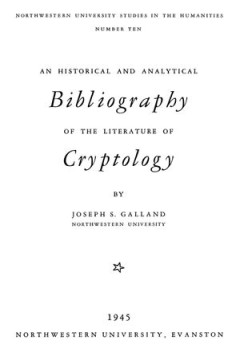
An Historical and Analytical Bibliography of the Literature of Cryptology
Originally published in 1945, An Historical and Analytical Bibliography of the Literature of Cryptology provides a comprehensive listing of the most important works written up to that time on cryptography, as well as works in related fields in which cryptography appears. It includes a vast range of materials: scientific and technical works dealing with military, diplomatic, and commercial uses …
- Edition
- -
- ISBN/ISSN
- 9780810138414
- Collation
- -
- Series Title
- -
- Call Number
- 800 GAL h
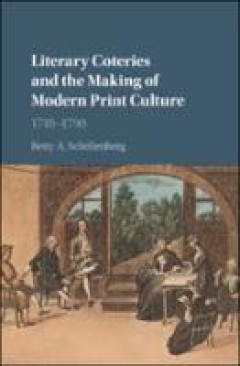
Literary Coteries and the Making of Modern Print Culture
Literary Coteries and the Making of Modern Print Culture, 1740-1790 offers the first study of manuscript-producing coteries as an integral element of eighteenth-century Britain’s literary culture. As a corrective to literary histories assuming that the dominance of print meant the demise of a vital scribal culture, the book profiles four interrelated and influential coteries, focusing on each…
- Edition
- Ed. 1
- ISBN/ISSN
- 9781107128163
- Collation
- -
- Series Title
- -
- Call Number
- 900 SCH l
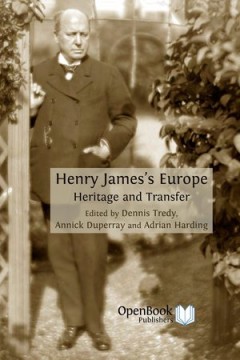
Henry James' Europe : Heritage and Transfer
As an American author who chose to live in Europe, Henry James frequently wrote about cultural differences between the Old and New World. The plight of bewildered Americans adrift on a sea of European sophistication became a regular theme in his fiction.
- Edition
- -
- ISBN/ISSN
- 9781906924386
- Collation
- 316 halaman
- Series Title
- -
- Call Number
- 800 TRE h
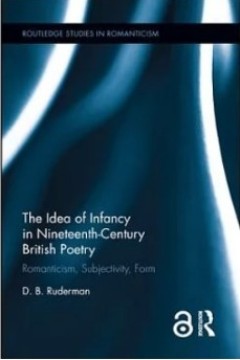
The Idea of Infancy in Nineteenth-Century British Poetry : Romanticism, Subje…
This book radically refigures the conceptual and formal significance of childhood in nineteenth-century English poetry. By theorizing infancy as a poetics as well as a space of continual beginning, Ruderman shows how it allowed poets access to inchoate, uncanny, and mutable forms of subjectivity and art. While recent historicist studies have documented the "freshness of experience" childhood co…
- Edition
- -
- ISBN/ISSN
- 9781317276487
- Collation
- 288 halaman
- Series Title
- -
- Call Number
- 800 RUD i
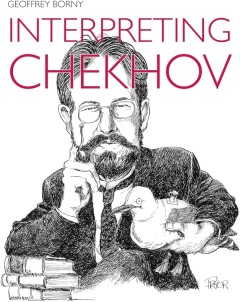
Interpreting Chekhov
The author’s contention is that Chekhov’s plays have often been misinterpreted by scholars and directors, particularly through their failure to adequately balance the comic and tragic elements inherent in these works. Through a close examination of the form and content of Chekhov’s dramas, the author shows how deeply pessimistic or overly optimistic interpretations fail to sufficiently ac…
- Edition
- -
- ISBN/ISSN
- 9781920942687
- Collation
- -
- Series Title
- -
- Call Number
- 800 BOR i
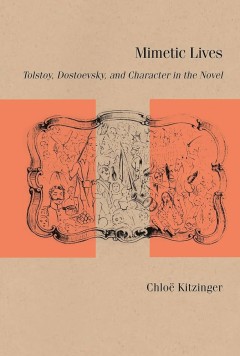
Mimetic Lives : Tolstoy, Dostoevsky, and Character in the Novel
What makes some characters seem so real? Mimetic Lives explores this unprecedented question on the rich ground of Tolstoy’s and Dostoevsky’s fiction. Each author discovered techniques for intensifying the aesthetic illusion Kitzinger calls mimetic life: the reader’s sense of a character’s embodied existence. Both authors tested the limits of that illusion by pushing it toward the novel�…
- Edition
- -
- ISBN/ISSN
- 9780810143975
- Collation
- 256 halaman
- Series Title
- -
- Call Number
- 800 KIT m
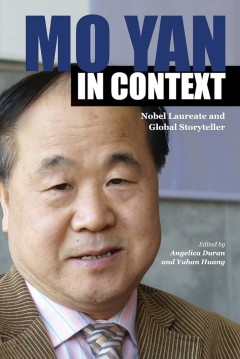
Mo Yan in Context : Nobel Laureate and Global Storyteller
This is the first English-language study of the Chinese writer’s work and influence, featuring essays from scholars in a range of disciplines, from both China and the United States. Its introduction, twelve articles, and epilogue aim to deepen and widen critical discussions of both a specific literary author and the globalization of Chinese literature more generally.The book takes the â…
- Edition
- -
- ISBN/ISSN
- 9781612493435
- Collation
- -
- Series Title
- Comparative Cultural Studies
- Call Number
- 800 DUR m
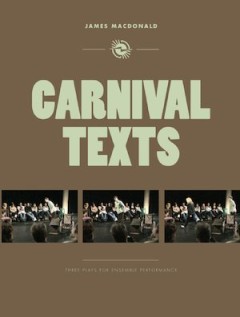
Carnival Texts : Three plays for ensemble performance
Carnival Texts comprises three related dramatic works, all of which have as their point of departure Russian theorist Mikhail Bakhtin’s concept of carnival, a literary style designed to subvert dominant assumptions through chaos and humour. Making creative use of post-Brechtian performance theory, these texts blur the distinction between spectator and performer in a fascinating exploration of…
- Edition
- -
- ISBN/ISSN
- 9781841505008
- Collation
- -
- Series Title
- -
- Call Number
- 700 MAC c
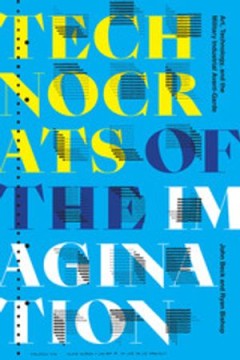
Technocrats of the Imagination : Art, Technology, and the Military-Industrial…
Technocrats of the Imagination traces the rise of collaborative art and technology labs in the U.S. from WWII to the present. Ryan Bishop and John Beck reveal the intertwined histories of the avant-garde art movement and the military-industrial complex, showing how radical pedagogical practices traveled from Germany’s Bauhaus movement to the U.S. art world and interacted with government-funde…
- Edition
- -
- ISBN/ISSN
- 9781478005957
- Collation
- 240 halaman
- Series Title
- -
- Call Number
- 700 BEC t
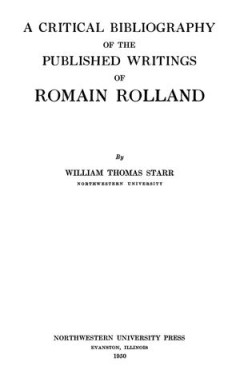
A Critical Bibliography of the Published Writings of Romain Rolland
Late nineteenth-and early twentieth-century French writer Romain Rolland remains best known for his epic coming-of-age tale, Jean Christoph. In A Critical Bibliography of the Published Writings of Romain Rolland William Thomas Starr Starr painstakingly collects the information on all writings by and about this prolific author through 1949. Organized into two parts, the bibliography lists the wr…
- Edition
- -
- ISBN/ISSN
- 9780810138711
- Collation
- 168 halaman
- Series Title
- -
- Call Number
- 800 STA c
 Computer Science, Information & General Works
Computer Science, Information & General Works  Philosophy & Psychology
Philosophy & Psychology  Religion
Religion  Social Sciences
Social Sciences  Language
Language  Pure Science
Pure Science  Applied Sciences
Applied Sciences  Art & Recreation
Art & Recreation  Literature
Literature  History & Geography
History & Geography